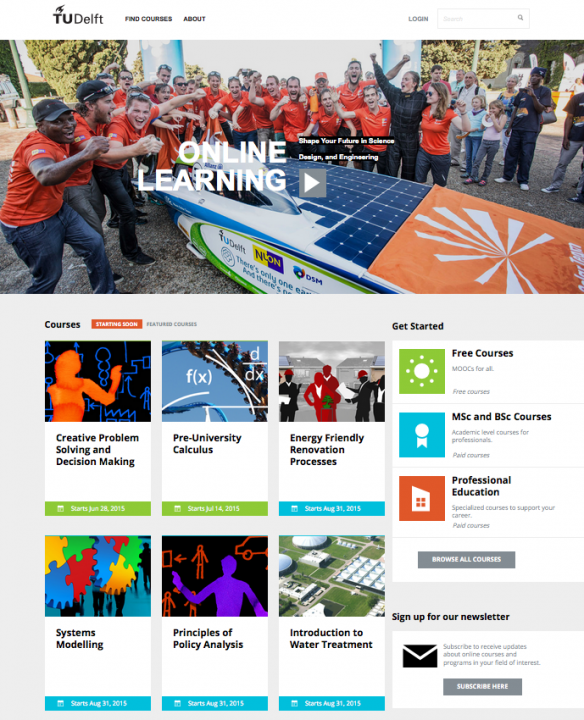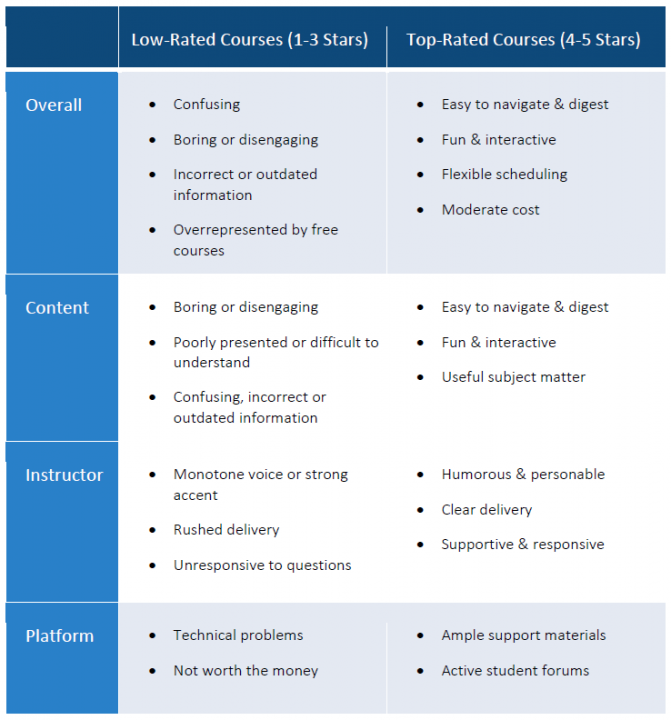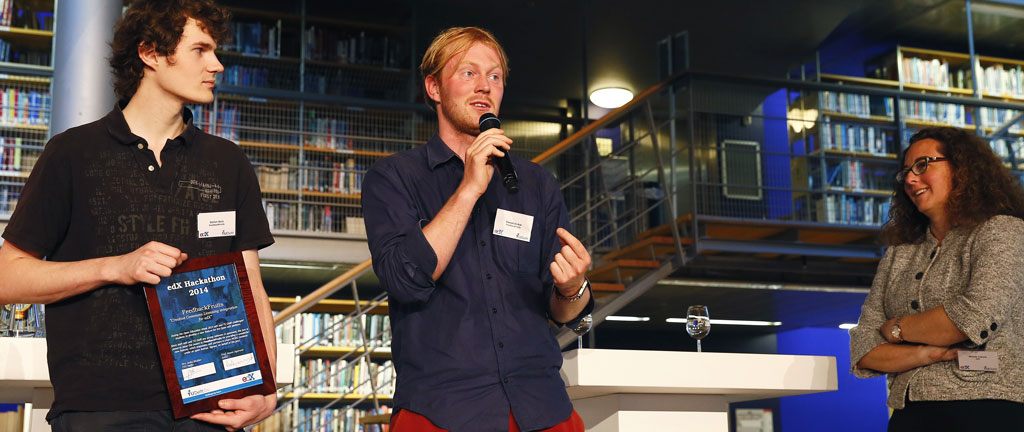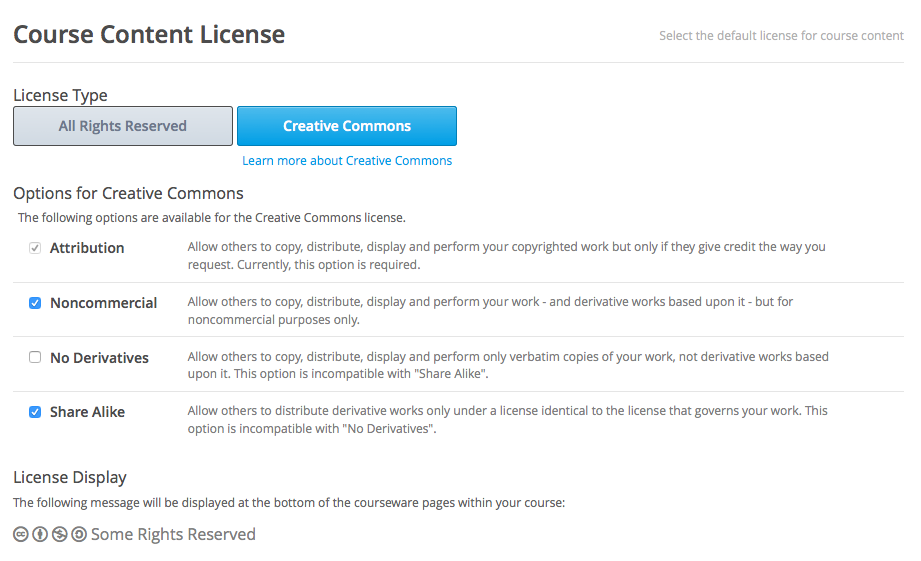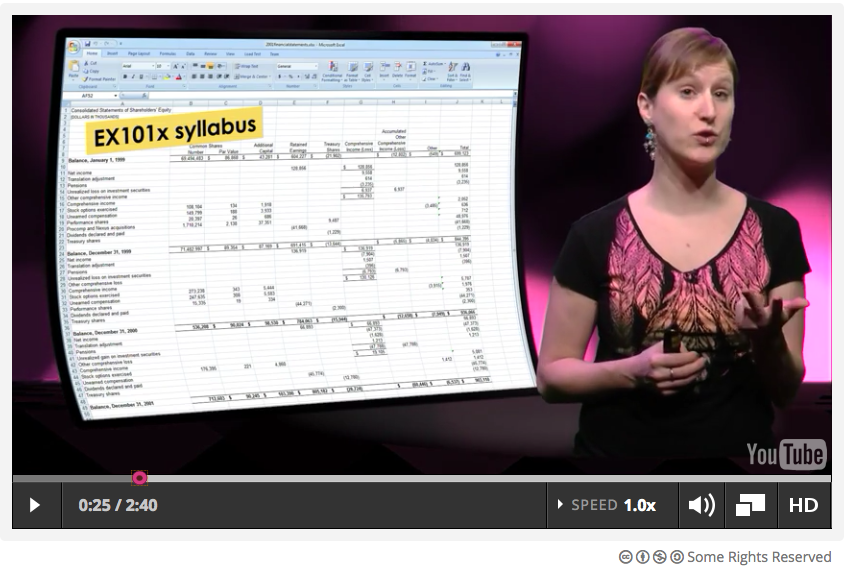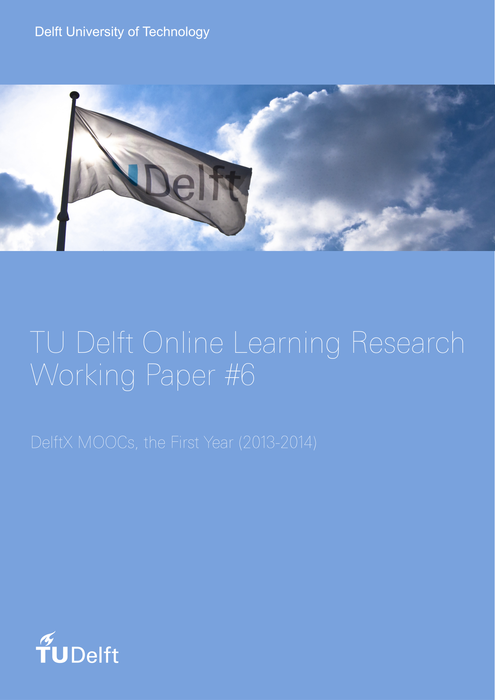More and more you hear about the term "Open Science". The term refers to developments in how science is becoming more open, accessible, efficient, democratic, and transparent, based on new, digital tools for scientific collaboration, experiments and analysis and which make scientific knowledge more easily accessible both for professionals and the general public.
After a public consult, the European Commission has adopted this term as well to replace the term Science 2.0. Last month Carlos Moedas, Commissioner for Research, Science and Innovation outlined the plans for "Open Innovation, Open Science, Open to the World".
Open Education
I think this is a very good initiative, but it is missing an important aspect. According to the plans we should do a much better job in bringing Science to Society, but there is no mentioning of Open Education. According to the Open Education Consortium "Open Education combines the traditions of knowledge sharing and creation with 21st century technology to create a vast pool of openly shared educational resources, while harnessing today’s collaborative spirit to develop educational approaches that are more responsive to learner’s needs."
The strength of (Open) Education is that it makes knowledge much more accessible for a general public. It is not only about sharing (publishing content), but really about learning. So to use the knowledge for learning new skills and competencies. That will really prepare the European citizens for the 21st century.
MOOCs as dissemination of research
A very good example of these are MOOCs, or at least the open MOOCs. I'm not talking about the introduction courses on many subject, but on the advanced courses. A good example is one of our MOOCs on the subject of Topology in Condensed Matter: Tying Quantum Knots. This course ran this spring on EdX with 4,000 people. That doesn't sound like much (at least in comparison to our other MOOCs), but keep in mind that you need at least a Master in Physics, preferable a PhD to follow this course. All the course materials are also available outside of edx to make it even more accessible. The lecturers of this course are all involved with the research conducted at the Delft Kavli Institute on Quantum Computers.
Image: CC-BY 4.0 International License Open Knowledge Foundation




